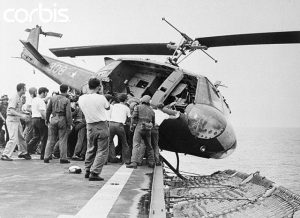During the past few years, I have done several radio interviews on the topic of writing fiction and writing in general. I posted those transcribed interviews as a three-part series. This is the third post. I hope you find these posts interesting and, most of all, helpful. Here is Part Three:
If you could have dinner with one person, dead or alive, who would it be and why?
Winston Churchill. He was brilliant, and I would hope that by the end of dinner, some of that brilliance would have rubbed off on me though I seriously doubt it.
What is one food you would never eat?
Monkey Brain Sushi (yes, it is a real dish in China, and I won’t tell you how it’s prepared). It is considered a cure for impotence (what isn’t?).
Another dish I will continue to eschew is Balut, which is a delicacy in The Philippines. It is fertilized chicken or duck eggs in which the developed embryo is boiled and eaten from the shell. Yum!
This brings me to some advice an old Chicago Tribune copy editor named Spokely gave me when I was getting ready to leave Chicago for my first posting as a foreign correspondent. “You are going to places that serve strange food, and you will be tempted to say ‘no thank you’ when it is offered. Don’t do that. It will be an insult to your host. When somebody offers you something to eat that looks or smells horrible, just remember Spokely’s Law: Everything tastes more or less like chicken.”
What were the last couple of movies you watched?
Elvis, Blond, Midway, Empress, Little Women, Bombshell, The Good Liar, and Harriet.
What was the scariest moment of your life?
There have been several. One was during the evacuation of Saigon in 1975. The last day was chaos incarnate. Russian-made 122mm rockets were slamming into buildings, 130mm mortars were hitting Tan Son Nhut airport, and the U.S. Embassy was surrounded by frantic South Vietnamese desperate to get out of the country because they had worked for the American military or some U.S. agency. The city was in full panic mode. Several of us made our way to the sprawling Defense Attaché Office building at Tan Son Nhut, and we were finally evacuated by a U.S. Marine CH-53 Sea Stallion helicopter. It was a relief until the door gunner told me later aboard the U.S.S. Okinawa that the pilot had to drop a flare to misdirect a S.A.M. -7 (surface-to-air missile).

Another was during the 1989 Tiananmen Square massacre when several Chinese students and I were pinned down near the square for 30 minutes or so by Chinese soldiers shooting in our direction. Several students near me were wounded, and we were helping them get to a doctor’s house nearby so he could treat them. I was convinced I was going to wind up dead in the square. Then suddenly, the shooting stopped, and I got my Red and White bicycle that I had chained to a lamppost and peddled like crazy for the Jinhua Hotel where I was staying and from where I was filing my stories to the Tribune.
Another memorable moment was during the revolution in El Salvador when two German correspondents and I were stopped in our car near the town of Suchitoto by Communist guerillas. They put cloth bags over our heads and forced us to kneel alongside the road. We were sure we were going to be executed. However, the “jefe” (leader) suddenly showed up and set us free. “Don’t kill journalists–unless they are armed,” he yelled at his troops. I was relieved that I had left the Model 1911 Colt.45 pistol I had purchased a few days earlier in the hotel in San Salvador. I believe it is still there.
Ahhh, yes, the life of a foreign correspondent…never dull. Nevertheless, I still believe I had the best job in the world and wouldn’t trade my career for anything.
What books have most influenced your life?
Scoop, by Evelyn Waugh; The Grapes of Wrath, John Steinbeck; The Quiet American, Graham Greene; The Jewel in the Crown, Paul Scott; Kim, Rudyard Kipling; Huckleberry Finn, Samuel Clemons (Mark Twain); A Passage to India, E.M. Forster; Sister Carrie, Theodore Dreiser; The Naked and the Dead, Norman Mailer.

What do you do to unwind and relax?
What else? I read. I find that a good book helps me escape from my writing, which I need to do on occasion.
Do you have a Website or Blog?
Yes, I have both. My website is http://ronaldyatesbooks, and I am continually updating it. My blog is http://ronaldyatesbooks.com/category/foreign-correspondent/ I try to post to it at least once or twice a week. I also have an Amazon Author Central page at http://www.amazon.com/-/e/B001KHDVZI, and an Author’s Page on Facebook called Ronald E. Yates Books. It is located at https://www.facebook.com/Ronald-E-Yates-Books-688075584557417/ You can also find my commentaries on Substack at https://ronyates.substack.com/ and the American Free News Network at https://afnn.us.
What is your favorite line from a book?
I have a couple, and they are both from Evelyn Waugh: “Feather-footed through the plashy fen passes the questing vole.” It is a line from Waugh’s book Scoop, written by nature writer William Boot for the London Daily Beast just before he is mistaken for a famous foreign correspondent and sent off to the fictional African country of Ishmaelia to cover a war.
This great line comes from Waugh’s book Vile Bodies: “I know very few young people, but it seems to me that they are all possessed with an almost fatal hunger for permanence.”
If it were mandatory for everyone to read three books, what books would you suggest?
Huckleberry Finn; Grapes of Wrath; Sister Carrie. Not only are these classics, but they are also beautiful stories about the human spirit, its resiliency and strength, and its deficiencies and weaknesses.
Is there ever a time when you feel like your work is truly finished and complete?
I don’t know if that ever happens. I do know that at some point, YOU MUST LET IT GO! Writing a book is a bit like rearing a child. Eventually, after you have imbued the child with as much of your worldly experience and wisdom as he or she can grasp and absorb, you have to allow your creation to encounter the world. It’s the same with books. Writers can fiddle with plots, characters, endings, and beginnings ad nauseam and never feel the book is finished. My advice–JUST FINISH THE DAMNED BOOK! Get over it and get the book out into the public domain. Readers will let you know if you have finished the book–and if they like it.
What is the biggest misconception beginning writers have about being published?
Probably once you get a publishing contract, you are going to become a millionaire. I have published two books before Billy Battles with traditional publishers, and I am still in the hunt for my first million. The J. K. Rowling’s of the world are anomalies. However, thank God they exist because it keeps the rest of us working our tails off in pursuit of that elusive success. Now, I believe many writers write for the sheer joy we get from telling a good story–at least, I do. The money is less of an incentive.

What would you like readers to gain from reading your books?
Because the Finding Billy Battles trilogy is historical fiction set in the 19th and early 20th Centuries, I would like readers to understand the time and place of the story told in the three books. I would like them to have an appreciation of the way people lived, how they thought, and how they dealt with both adversity and triumph in a very different era. Finally, I would like readers to finish my trilogy and think to themselves: “Damn, I didn’t want that story to end!”
–30–
If you enjoyed this post, please consider subscribing to ForeignCorrespondent and tell your friends to subscribe. IT’S FREE! WHAT A DEAL! If you’ve received this from a friend and would like to be added to our distribution list for future blog posts, please enter your email address in the sign-up in the notifications box at:
https://ronaldyatesbooks.com/category/foreign-correspondent.
You can also find my commentaries on Substack at https://ronyates.substack.com/ and the American Free News Network at https://afnn.us.
Please feel free to comment. WE LOVE COMMENTS!

